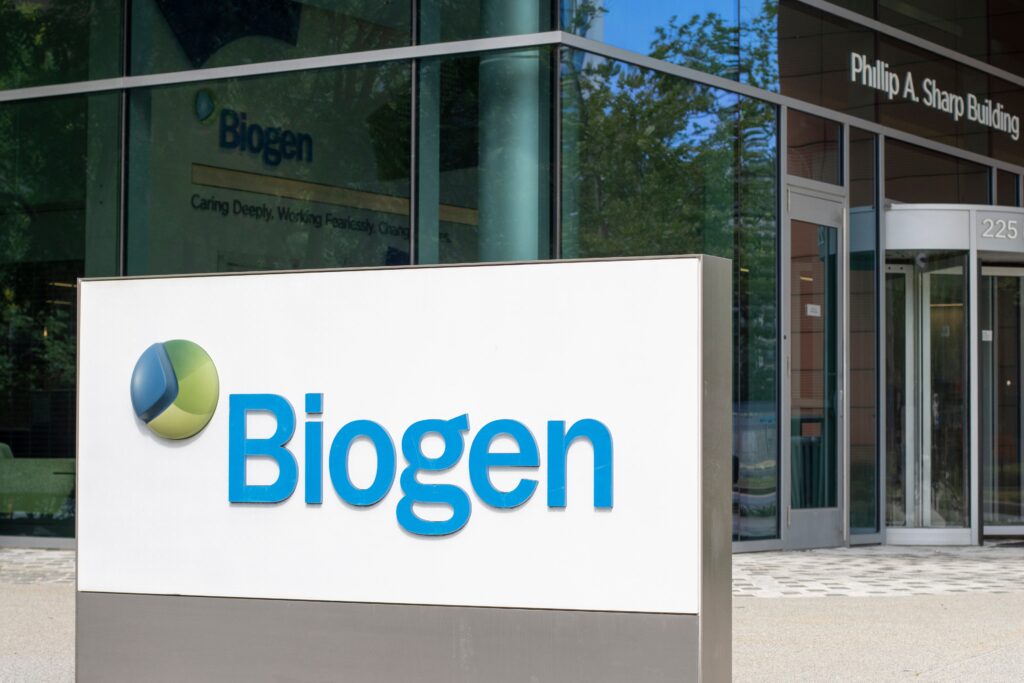Two years after its approval in 2021, Biogen has decided to pull the plug on its Alzheimer’s drug Aduhelm (aducanumab).
In a statement, the company said it will discontinue Aduhelm to focus efforts on its other amyloid beta-directed antibody Leqembi (lecanemab) for Alzheimer’s and focus on developing other new treatments. After its accelerated approval in January 2023, Leqembi received full US Food and Drug Administration (FDA) approval in July 2023.
The journey of Aduhelm from its accelerated approval and predicted blockbuster status to discontinuation has been fraught with controversy, debate and ultimately, disappointment.
Jointly developed with Esai, Aduhelm was initially heralded as a breakthrough in Alzheimer’s treatment, representing the first therapy that aimed to directly tackle the disease’s underlying pathology — reducing beta-amyloid plaques — rather than merely managing symptoms. As the first amyloid beta-targeting monoclonal antibody for Alzheimer’s, it was also the first drug to be approved for the disease in almost 20 years.
Less than a month after its accelerated approval, the FDA restricted its recommendation of the drug for mild forms of the disease citing a lack of data supporting its use in early stages, which was not studied in trials.
The approval of Aduhelm was met with immediate and widespread criticism from many in the medical and scientific communities. Critics argued that the evidence for Aduhelm’s effectiveness in improving cognitive function or slowing the progression of Alzheimer’s disease was inconclusive at best.
Related: Leqembi (lecanemab) Granted Accelerated Approval by the FDA as Alzheimer’s Disease Treatment
Two major clinical trials had produced conflicting results, with one trial suggesting some benefit and the other showing no significant difference compared to placebo.
Additionally, the FDA’s decision to approve the drug despite the recommendation against it by its own advisory committee raised concerns about the approval process and the standards being applied to treatments for Alzheimer’s disease.
Post-accelerated approval, things didn’t get much better. Aduhelm’s annual cost of $56,000 also drew significant backlash from the public and healthcare providers due to concerns about affordability, insurance coverage and cost-effectiveness.
Nevertheless, analysts initially predicted it would become a billion-dollar blockbuster for Biogen. But the drug only ended up bringing in millions per quarter, relegating it to the company’s “other” category.
But Biogen couldn’t convince payers of its benefits. The Centers for Medicare & Medicaid Services (CMS) introduced a policy specifically for amyloid-targeting monoclonal antibodies for Alzheimer’s, according to which drugs without traditional FDA approval are not covered.
And while the US government’s Medicare program raised the premium it charges for its coverage, largely due to an influx of Aduhelm claims, it eventually dropped the premium and put strict limits on who could get it.
Biogen said it took a one-time $60 million charge in the fourth quarter of 2023 to close out its Aduhelm program. This includes terminating the Phase IV post-marketing confirmatory ENVISION study, which was required by the FDA under its accelerated approval to confirm Aduhelm’s clinical benefit.
Biogen said that in January 2023, the company began a “strategic review of its research and development efforts, including seeking potential partners or external financing for Aduhelm.” The company said, “during this process, Biogen considered the time and investment required for the post-marketing confirmatory ENVISION study and the likely advancements in the field by the time of potential Aduhelm FDA traditional approval.
Despite an extensive process, the company said it was unable to secure potential strategic partners or external financing.
Biogen also terminated the license for aducanumab that it had received from Neurimmune and will revert the rights of the drug to the company.
Biogen’s newer Alzheimer’s medicine Leqembi won full FDA approval last year for patients with mild dementia and other symptoms caused by early Alzheimer’s.
Despite securing full approval, things aren’t looking too rosy for Leqembi either. Some clinicians are as wary of the drug as they were of Aduhelm. Although it’s the first treatment that has shown convincing evidence of slowing down cognitive decline, the results are modest.
According to a recent report by life science market research company Spherix, “few surveyed neurologists consider Leqembi to be a significant medical advance over other historical Alzheimer’s disease .”
Biogen’s strategic review that led to the “reprioritizing of resources” for Aduhelm was launched under the reigns of new CEO Chris Viehbacher. The former Sanofi chief joined Biogen in November 2022.












Join or login to leave a comment
JOIN LOGIN